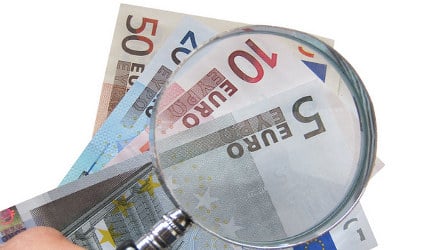The poll was carried out in the wake of inflammatory comments made by government minister Michel Sapin who sent pulses racing among his colleagues when he described France as a “totally bankrupt” state.
Sapin said he was simply being ironic by echoing a famous declaration made by former Prime Minister François Fillon in 2007.
Although the Socialist government’s Finance Minister Pierre Moscovici quickly distanced himself from Sapin’s “inappropriate” comments, it appears a majority of French people agree with him.
According to the poll carried out on behalf of France’s BFMTV, 62 percent of French agree that the country is bankrupt.
The poll also revealed that a respondent’s point of view depended heavily on their political persuasion. The notion France was ‘bankrupt’ won more sympathy among supporters of the opposition (73%) where as 54% of left wing supporters thought it was unjustified.
Faced with an economy on the brink of recession and rising unemployment, President François Hollande is betting on a mixture of reforms and public investment to give a boost amid an uproar over proposed tax hikes, especially on the rich.
France's 2013 budget is based on meeting the EU public deficit limit of 3.0 percent of gross domestic product, as required by Brussels, but with growth expected to fall short of forecasts, many analysts doubt that this is now possible.
The poll was taken from an survey of around 1,000 people.



 Please whitelist us to continue reading.
Please whitelist us to continue reading.
Member comments